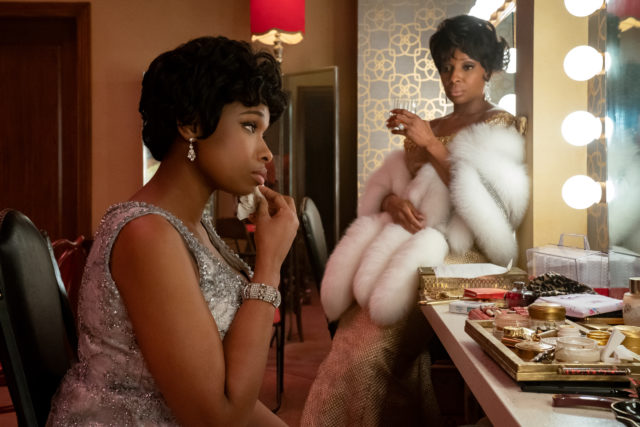Reviews include M3GAN 2.0, Familiar Touch, and I’m Your Venus.
TFCA Friday: Week of Aug. 13
August 13, 2021

Welcome to TFCA Friday, a weekly round-up of film reviews and articles by TFCA members.
In Release this Week
10/13 Part 2 (dir. various)
“10/13 Part 2 is a bargain-basement horror anthology with some segments coming off as being pieced together during a cottage weekend with guests too drunk to know better than to make a movie,” groans Thom Ernst at Original Cin.
Beckett (dir. Ferdinando Cito Filomarino)
“Director Ferdinando Cito Filomarino knows how to escalate tension and sustains it believably for the first two acts, but lets us down in the third which is repetitive and drawn out,” writes Anne Brodie at What She Said. “But till then it’s a fun, engaging adventure.”
Big House (dir. Jack Lawrence Mayer; Aug. 17)
“It feels like a tiny stage play and must have been shot quickly, to support the whiplash confusion,” admits Anne Brodie at What She Said.
CODA (dir. Siân Heder)
“The crackerjack cast includes Marlee Matlin, Troy Kotsur and Daniel Durant as Ruby’s deaf kin who humorously know how to raise a din,” writes Peter Howell at Night Vision. “Actor turned writer/director Heder (“Tallulah”) reels in lightning with her second feature.”
“The obvious ploy to turn an audience to mush pays off, especially in the hands of actors like Troy Kotsur and Marlee Matlin, the Children of a Lesser God star who became the first deaf actress to win an Oscar more than 30 years ago,” admits Radheyan Simonpillai at NOW Toronto.
The Comeback Trail (dir. George Gallo)
At Afro Toronto, Gilbert Seah says that “a generally lacklustre unfunny script written by director Gallo led by lazy direction bogs the film down.”
Free Guy (dir. Shawn Levy)
“It’s far too long and not nearly as funny as it could be, despite the wealth of talent involved,” admits Norm Wilner at NOW Toronto. “The filmmakers can’t be bothered to mine its premise for anything more than superficial, moment-to-moment activity; instead, they just throw money at the effects and the production design and assume the actors will make it all work on the day.”
“If The Matrix and The Truman Show had a baby, which was then adopted by They Live and Inception, with Blade Runner and Thor: Ragnarok and Ready Player One as a thruple of godparents – well, you might end up with something as sweet and sassy and wonderfully deranged as Free Guy,” proclaims Chris Knight at the National Post.
“Free Guy walks a line between smart-alecky and sweet. For the fan boys, it features cameos from well-known gamers and in-jokes about IP (intellectual property), sequels, cameos, and the Walt Disney Co. catalogue (including Lucasfilm and Marvel),” writes Liam Lacey at Original Cin. “At the same time, it promotes anti-corporate artisanship and old-fashioned romance, swing sets, and bubble-gum ice-cream.”
“[T]aunts the audience to think outside the box of who one really is,” suggests Gilbert Seah at Afro Toronto.
Jakob’s Wife (dir. Travis Stevens; Aug. 22)
“Director Steven’s over-the-top horror flick is over-the-top funny with lots of excesses (blood and gore), more than necessary, but this aids director Stevens’ purpose,” says Gilbert Seah at Afro Toronto.
Howling Village (dir. Takashi Shimizu; Aug. 17)
“But despite Howling Village’s stronger narrative, the film comes to a confusing muddled conclusion,” admits Gilbert Seah at Afro Toronto.
“It all sounds rather spooky, with great potential for gore if only Howling Village didn’t dodge every opportunity to create something disturbing,” sighs Thom Ernst at Original Cin. “The death scenes, even when vicious in concept, are tame. And the special effects, especially that of the creatures from Howling Village, are as scary as the trails left behind from a moving glow-stick.”
Materna (dir. David Gutnick)
“Four New York women happen to share a crowded subway car in David Gutnick’s Materna that changes their lives,” observes Anne Brodie at What She Said. “Assol Abdullina, Jade Eshete, Kate Lyn Sheil and Lindsay Burdge sit quietly focusing on their current situations when a stranger melts down, verbally abusing and threatening them.”
“While Gutnik has assembled a talented cast, the constraints of a 105-minute runtime means the stories feel underdone in places, including anything about that furiously entitled man in the subway. Wonder what was his mother was like?” asks Linda Barnard at Original Cin.
“Materna is a thought provoking first feature that does not really go anywhere with its alienation theme,” writes Gilbert Seah at Afro Toronto.
Misha and the Wolves (dir. Sam Hobkinson)
“A standout selection at Sundance, the film is a twist-upon-twist, reveal-after-after, jaw-on-the-floor thrill ride,” raves Pat Mullen at POV Magazine. “Misha and the Wolves is a wild-but-true story masterfully told about the art of deception and the cost of lies.”
Also at POV Magazine, Jason Gorber interviews director Sam Hobkinson about crafting a wild story about the art of storytelling. “I tracked the story back and researched a little bit and quickly realized that it was quite an amazing story,” explains Hobkinson. “I could immediately envision a documentary where I could tell a story about storytelling, which would explore themes of memory and history, one that would start as an historical documentary but become very quickly a psychological thriller.”
Naked Singularity (dir. Chase Palmer)
“Naked Singularity may wear the robe of a heist film with a message, but its collection of half-formed ideas shows just how bare it is underneath,” writes Courtney Small at That Shelf.
“Feverish and fast, it salutes the decaying NYC of a couple of decades back,” proclaims Anne Brodie at What She Said. “Linda Lavin’s still got it.”
At Afro Toronto, Gilbert Seah calls it an “ambitious and entertaining adaptation of the difficult novel that should keep audiences intrigued by its many storylines.”
Nine Days (dir. Edson Oda)
“‘Just tell me the rules and I’ll play the game.’ It’s a line delivered by one of the characters in the existential drama Nine Days, but it’s also a version of what we ask of every movie we sit down to watch. They’re not all constructed in the same way, but as long as they maintain a degree of self-consistency, we’re usually game to ride along,” writes Chris Knight at the National Post.
“Zazie Beetz, Tony Hale and Bill Skarsgård are among the candidates, and Benedict Wong is quietly wonderful as Will’s slightly acerbic supervisor. But it’s [Winston] Duke who carries the picture…coming into his own as a leading man, withholding so much from his co-stars and from us,” raves Norm Wilner at NOW Toronto.
“Nine Days, by inevitable comparison to Kore-da’s 1998 masterpiece After Life, looks false, unashamedly copied and artificially melodramatic,” argues Gilbert Seah Afro Toronto.
“Nine Days is mystical and gut-wrenching, lifting the shadows of non-life and reminding us to appreciate the gift of life and the complexity of our moral existence,” writes Anne Brodie at What She Said.
Respect (dir. Liesl Thomas)
“Aretha Franklin’s story is told dutifully but without much soul in Respect. The shapeless biopic – authorized by the late Queen of Soul’s family – is a two-and-a-half-hour grind that checks off the traumas and high notes over two decades in Franklin’s life,” says Radheyan Simonpillai at NOW Toronto.
“There are wads of touring and bad marriage dramatic filler until, at about the two hour mark (yes, I was looking at my watch) the movie takes another abrupt tone shift,” sighs Liam Lacey at Original Cin. “Aretha, having liberated herself from the domineering influence of her father and husband, transforms into an out-of-control diva, drinking heavily, snapping at the help and randomly cancelling bookings, before drunkenly face-planting off the stage in Columbus, Georgia, dressed in a Nefertiti hat.”
“There’s nothing inherently wrong with Respect, but there’s little that’s outstanding about it either,” admits Chris Knight at the National Post. “As written by Callie Khouri and Tracey Scott Wilson, the screenplay hits all the standard music-biopic notes, including childhood troubles, early natural talent, a remember-this-moment prediction – ‘music will save your life,’ says friend and fellow musician Rev. James Cleveland… – and the climb to fame, which includes Finding Your Voice.”
“An outstanding cast of film and Broadway stars,” notes Anne Brodie at What She Said.
“In an age of BLM and a welcomed revival of interest in feminism not to mention an increased attention to Ms. Franklin’s great singing, that should make Respect a hit even if most critics—including this one—find the film to be uneven tonally and overly melodramatic on the whole,” says Marc Glassman at Classical FM.
“Ironically, my complaint with the long-shelved documentary Amazing Grace is that it lacks context. Respect puts all the sweat and tears of the concert doc in the right place. Respect might not serve so much as a great film, but as a great coagulant for all the docs chronicling Franklin’s career,” writes Pat Mullen at That Shelf.
Sparkling: The Story of Champagne (dir. Frank Mannion)
“I had a good time and if you enjoy the divine bubbly drink, you will have fun watching the film. And remember not to let the cork pop!” writes Marc Glassman at POV Magazine.
Swan Song (dir. Todd Stephens)
“Swan Song is a specialized film that does not cater to the masses,” says Gilbert Seah at Afro Toronto. “It is a definite queer film, and even so, commercial gay audiences might be bored, except maybe for the amusing camp scenes.”
“With a mix of magic realism and fabulousness, he presents Pat’s quest as a metaphysical this-is-your-life expedition, including run-ins with old friends, colleagues and customers who might or might not be real,” says Chris Knight at the National Post.
“The wonderful German character actor Udo Kier plays a hairdresser and drag performer who lives in a retirement home in Sandusky, Ohio in Swan Song, another film that reminds us how precious is life,” notes Anne Brodie at What She Said. “It’s a fun and emotional odyssey and as charming as only Keir could be.”
When Hitler Stole Pink Rabbit (dir. Caroline Link; Aug. 10)
“[The] horrors of Nazi Germany appear more menacing when seen from the eye of the child, Anna,” notes Gilbert Seah at Afro Toronto.
“Jojo Rabbit and its source Caging Skies owe much to When Hitler Stole Pink Rabbit,” writes Pat Mullen at That Shelf. “The children’s book by Judith Kerr is a staple on reading lists about the Holocaust, particularly for young audiences. Viewers who were ill-at-ease with the whimsy of Taika Waititi’s (wonderful) film might prefer Caroline Link’s new adaptation of Kerr’s book.”
“[Riva] Krymalowski brings a vivacious energy to a movie that would otherwise be one long trudge to safe haven,” writes Jim Slotek at Original Cin. “And director Link makes good use of the scenery (particularly to the alpine surroundings of Zurich) to suggest that, to the children at least, each new destination is practically another planet.”
A Festival of Festival Coverage: Chastain on the Brain and VQFF
At NOW Toronto, Norm Wilner reflects on the 2011 TIFF issue cover that featured Jessica Chastain in her breakout year now that she’s returning ten years later as TIFF’s Tribute Actor Award winner. “Chastain, who’d broken out in Terrence Malick’s The Tree of Life…was coming to TIFF with two highly anticipated projects: Jeff Nichols’s apocalyptic psychological study Take Shelter, in which she co-starred opposite Michael Shannon, and Ralph Fiennes’s adrenalized adaptation of Shakespeare’s Coriolanus,” writes Wilner. “I’d seen Take Shelter, and was impressed with the way Chastain matched Shannon’s full-bore panic with increasingly fraying compassion; her performance makes sense of his. And I knew she’d be able to talk about how she does what she does, no matter how subtle or ephemeral, because I’d interviewed her when The Tree of Life opened and knew she was a major talent.”
At POV Magazine, Pat Mullen spotlights some of the documentaries at this year’s Vancouver Queer Film Festival, including Workhorse Queen about RuPaul’s Drag Race contestant Mrs. Kasha Davis, Sunset Boulevard doc Boulevard! A Hollywood Story, and the you-can’t-unsee-this kink of Raw! Uncut! Video!.
TV Talk: Indigenous Storytellers Speak
At The New York Times, Kelly Boutsalis hosts a round-table of Indigenous creators who discuss the possibilities opened up for Indigenous storytellers as shows like Reservation Dogs and Rutherford Falls. “But what [the two series] share is that they are both Native stories told largely by Native actors, writers, producers and directors,” writes Boutsalis. “The upshot has been a flourishing of new opportunities for Hollywood’s small but growing community of Native creators and performers, many of whom worked on both shows. They are determined to ensure that this long-awaited moment for Native American representation on television is not a fleeting one.”
At What She Said, Anne Brodie raves about Time: “You’ll be scared straight. Its epic highs and lows are almost Shakespearean, as two men face life-threatening danger on the inside.” She also likes the return of Modern Love, especially the “Strangers in a Train” episode, noting, “This is the funniest, most hopeful and charming episode, lifted by dry Irish humour and goodwill.”
At NOW Toronto, Norm Wilner has a bloody good time with Brand New Cherry Flavour. “Its whole deal is gruesome, preposterous madness – and keeping the rules of that madness just out of focus,” writes Wilner. “But even when we don’t understand what’s happening, it all makes a cracked kind of sense.” On the other hand, What If is all over the map: “The comic-booky animation style takes some getting used to, and the first episode…suffers from compressing the entire plot of Captain America: The First Avenger into half an hour.”



